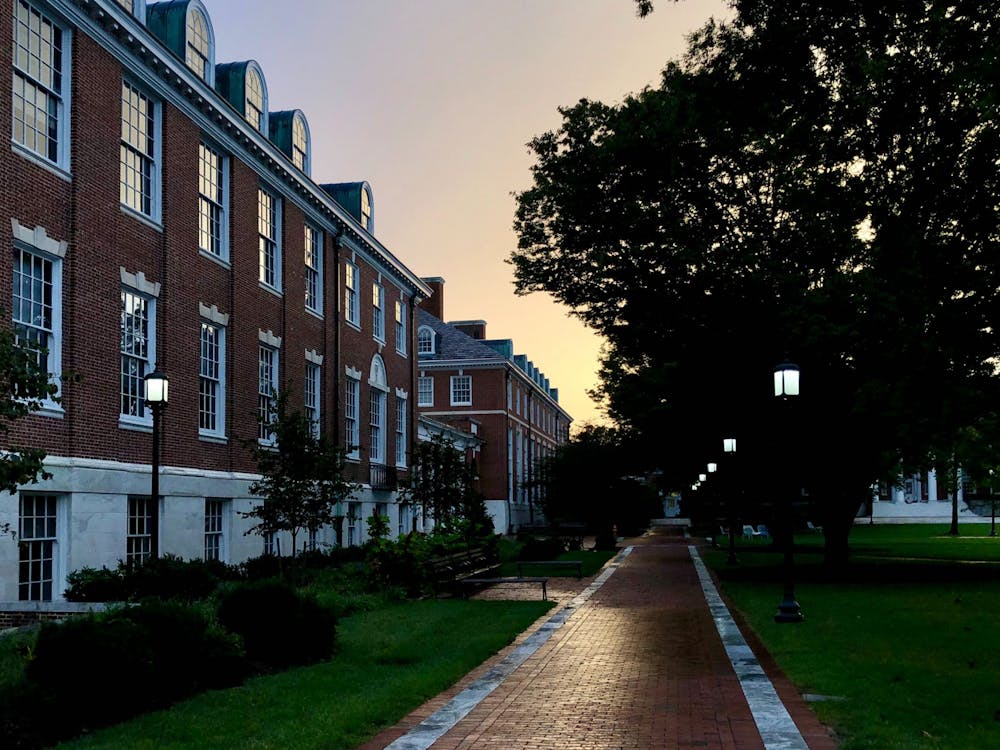In a letter to the Johns Hopkins University Police Accountability Board on August 26, the University revealed that the board would be paused until further notice.
The Accountability Board was originally created in February to monitor the creation of the Johns Hopkins Police Department (JHPD) and collect community input. In June, the University announced that the JHPD’s implementation would be suspended for at least two years following nationwide protests against racism and police brutality.
Karen Lancaster, assistant vice president of external relations for the Office of Communications, explained in an email to The News-Letter that the University thought it made the most sense to pause the JHPD and the Accountability Board simultaneously.
“Because the Accountability Board’s statutory role is to directly shape the development and operation of the future Johns Hopkins Police Department, we have determined that continuing that work now would contradict our commitment to a complete pause in efforts to develop the JHPD,” she said.
In an email to The News-Letter, the Coalition Against Policing by Hopkins (CAPH) expressed frustration over this development. CAPH members have been vocal critics of the JHPD, holding protests as recently as August 15.
“This concretely demonstrates that Hopkins isn’t even using the two years to attempt to adjust and reflect on their actions as they said they would,” they wrote. “This follows the trend of administration declaring their desire for community input, followed by symbolic and performative measures for said input, which Hopkins ultimately ignores and disrespects through refusing to disband a private police force which the community overwhelmingly stands against.”
Junior Pritika Parmar, who is a member of the Accountability Board, believes that the board’s suspension is unnecessary. She explained in an email to The News-Letter that though the Accountability Board had been facing many problems, holding only one general body meeting since its formation, it had still shown promise.
“While I understand that the University has stated that there will be no action on the JHPD in the next two years, I think the board should continue in the quest for alternative safety pursuits,” she wrote. “There is valuable work that needs to be done and having board members aiding in that pursuit and ensuring that the research is actually done wouldn’t hurt.”
The Accountability Board is made up of 10 University affiliates and five community members. Thirteen members were nominated by the University and then approved by Maryland senators on Feb. 28, with an additional two members selected by the mayor and the city council president. Because of this, board members are unsure whether they are under the jurisdiction of the State Senate or the University.
In an email to The News-Letter, former board member JD McCormick stated that he did not know if the University even had the authority to suspend the Accountability Board.
“The University’s decision to ‘pause’ the board has raised some questions with the remaining board members. Principally, can JHU even do that given the board was appointed by the State and several members aren’t even Hopkins affiliates,” he wrote. “We also have set terms set by the State, so the idea of a pause doesn’t really make sense.”
McCormick, director of finance and administration at Hopkins, resigned from the Accountability Board the day before its official suspension. His resignation, he said, was largely motivated by the board’s overall inaction and failure to engage with the community.
CAPH told The News-Letter that they were pleased to learn of McCormick’s resignation.
“We laud the individual who resigned and find it compelling that even those involved are beginning to see that reform doesn’t work. No reform or accountability board will be adequate as the issue lies in the function of policing, not in how it’s enacted,” they wrote.
McCormick clarified in a News-Letter op-ed that his resignation did not mean he was completely against the JHPD, but rather that he was unhappy with the Accountability Board’s role.
“To those well-meaning allies who have led this effort against the JHPD, thank you for your activism and persistence... Take care not to conflate or supplant Black people’s demand that the police stop killing us with your own legitimate but separate concerns over the State giving too much power and authority to a large, private institution like Hopkins,” he wrote. “Our demand not to die at the hands of police and that they be held accountable when they do wrong is not the same as your demand to disband them.”
According to Lancaster, if the University decides to move forward with the JHPD, it will reopen applications for the Accountability Board. She encouraged current board members to reapply when that time comes.
Parmar explained that, as a junior, she will probably graduate before the Accountability Board is reinstated, making reapplication impossible.
“I do hope that the future members are aware of the sentiments that were raised this time around and take all of that information into consideration when they begin their review,” she said.





